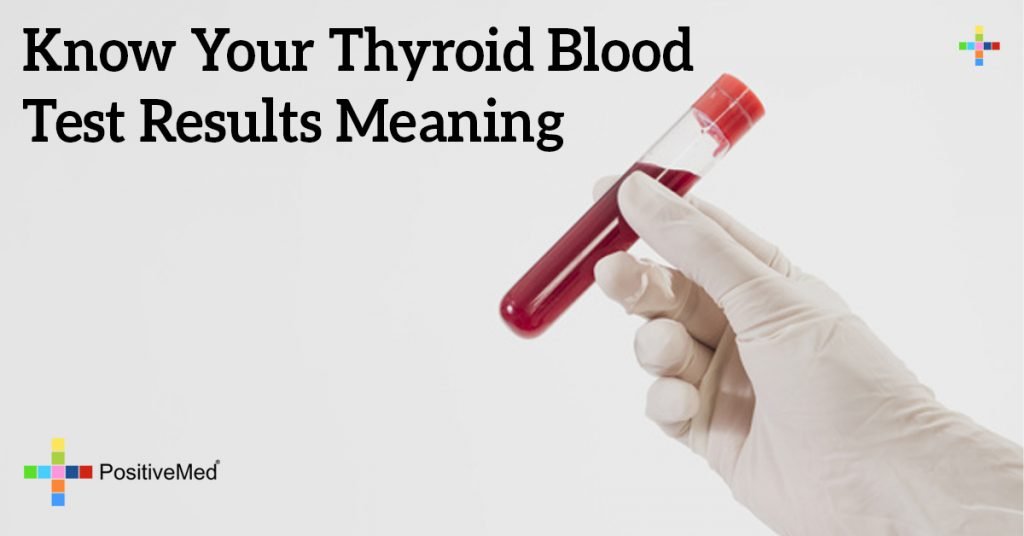
Know Your Thyroid Blood Test Results Meaning
[nextpage title=”…”]
Definition and Symptoms of Hypothyroidism
Underactive thyroid disease, or hypothyroidism, is an autoimmune disorder that usually presents in women who are middle-aged and older but it is becoming more common at younger ages. The thyroid begins to slow down as we age; sometimes this is associated with adrenal gland failure.

Symptoms you may notice at first are:
·General fatigue
·Weight gain
·Decreased heart rate
·Hair loss
·Memory impairment
A more comprehensive list is available from the Mayo Clinic.
Causes and Risk Factors for Hypothyroidism
·Although hypothyroidism is not an inherited disease, at least as far as science has been able to ascertain, you’re more likely to have it if a close relative has a thyroid disorder
·If you live with a person who has a thyroid disorder, even if you are not genetically related, you are more likely to develop a thyroid disorder.
·If you have another autoimmune disease, you’re more likely to develop a thyroid disorder.
·If you’ve received neck or upper chest radiation treatments, your chances increase.
·If you’re more than 60 years old, you’re more likely to develop thyroid issues.
·If you gave birth within the last six months, your risk increases.
·If you received radioactive iodine treatments, you’re at an increased risk.
Complications of Untreated Hypothyroidism
Although underactive thyroid is sometimes dismissed as a minor ailment, it can be life-threatening; if not properly treated, you can die from it. Additional side effects of untreated hypothyroidism include:
·Birth defects
·Depression
·Goiter
·Heart Disease
·Infertility
Advertisement:
Treatment for Hypothyroidism
The first step in the treatment of hypothyroidism is a fasting blood test. This means that you will eat or drink nothing for twelve hours before the test. A few sips of water are allowed if you require daily medication. You can have black coffee or tea but need to inform the phlebotomist if you do.
[/nextpage] [nextpage title=”…”]
Ideally, and for optimal results, stick to a complete fast. The results of the blood test will determine the level of thyroid hormone present in your body.
T4 Test
The level of serum thyroid hormone is measured by the T4/FT4 test, which is the most commonly used. It indicates the level of bound and free thyroxine in the blood; thyroxine is your main thyroid hormone. It increases your metabolism and regulates growth and development. Between 4.5 – 11.5 ug/dL is considered to be the normal range for this test.
T3 Test
A T3/TF3 test is sometimes ordered when there is a known thyroid condition. A doctor may order the T3 test if the patient exhibits signs such as:
·Anxiety
·Increased heart rate
·Insomnia
·Hand tremors
·Sporadic diarrhea
·Unintentional weight loss
·Visual sensitivities or disturbances
·Overall weakness
If the results of this test are low but the overall TSH is high and the T4 is low, then the patient typically has hypothyroidism. The normal range for T3 is 100-200 nanograms per deciliter.
RELATED ARTICLE: See How You Can Treat Hypothyroidism and Hashimoto’s Disease Naturally
Reverse T3, or rT3 Test
A controversial test, reverse T3 measures a metabolite of T4 in order to detect thyroid imbalances that might not be detected by conventional thyroid tests. Reverse T3 testing is usually ordered by holistic physicians who practice integrative medicine rather than the traditional Western approach. Since stress is a major factor in creating high rT3 levels, holistic practitioners feel that it is a more accurate indicator of true thyroid hormone levels, due to the high-stress levels experienced by many people.
Thyroid Peroxidase Antibodies Test
The thyroid peroxidase antibodies, or TPO, level indicates an immune disorder, such as Graves’ or Hashimoto’s disease. The presence of these antibodies indicate that your body is attacking itself; there should be no TPO antibodies in your blood. If there are, then you should periodically have your blood tested in case you develop a thyroid disorder.
[/nextpage] [nextpage title=”…”]
Thyroid Stimulating Immunoglobulins
Thyroid stimulating immunoglobulins, or TSI, bind to receptors on the thyroid gland, resulting in excess production of thyroxine and triiodothyronine. This condition is usually seen in persons who have Graves’ disease or Hashimoto’s disease. The TSI level should be no more than 1.3 for any age.
Thyroglobulin
Thyroglobulin, or Tg, measures the efficacy of thyroid cancer treatment and alerts the doctor to any recurrence of the cancer. Although small amounts of thyroglobulin are normal, elevated levels can indicate the presence of a tumor or cancer.
Thyroglobulin Antibodies
Serum Thyroglobulin Antibodies Test (TgAb)
The TgAb test measures the level of antibodies to thyroglobulin, which is a protein in the thyroid. This test is a tool used to diagnose autoimmune disorders of the thyroid gland and a normal range is less than 20 IU/ml.
Although these tests may seem excessive, and this list is not all-inclusive, they are necessary. Thyroid disorders are increasingly diagnosed and perhaps wrongly so.
The current method of treatment for Graves’ disease and other autoimmune disorders of the thyroid is radioactive iodine, which kills the thyroid but does not harm the surrounding tissue. This process involves a lengthy adjustment period: initially, there is no thyroid hormone being delivered to the body, then after a 10-day to two-week period, synthetic thyroid is introduced. Initially, blood tests are required every two months, then every six months, and then annually.
From a personal perspective and as one who has experienced this nightmare, the radioactive iodine treatment is not always a satisfactory solution. The adrenal glands are linked to the function of the thyroid and very little attention is paid to adrenal gland failure. If that issue were addressed, rather than rushing the patient into killing his or her thyroid, the body might begin to function the way it was designed rather than resigning an individual to a lifelong regimen of pills that may have side effects.
[/nextpage]





